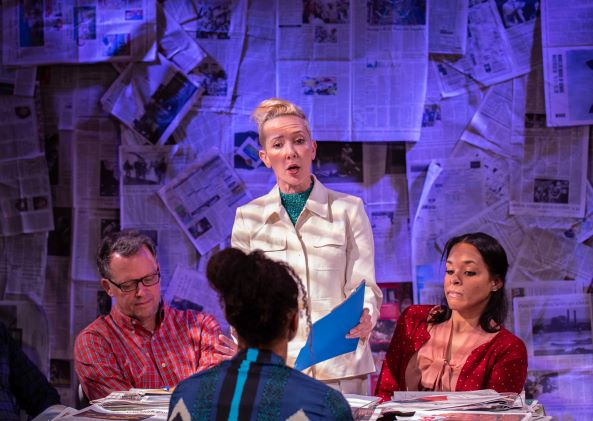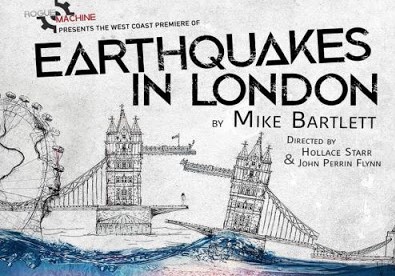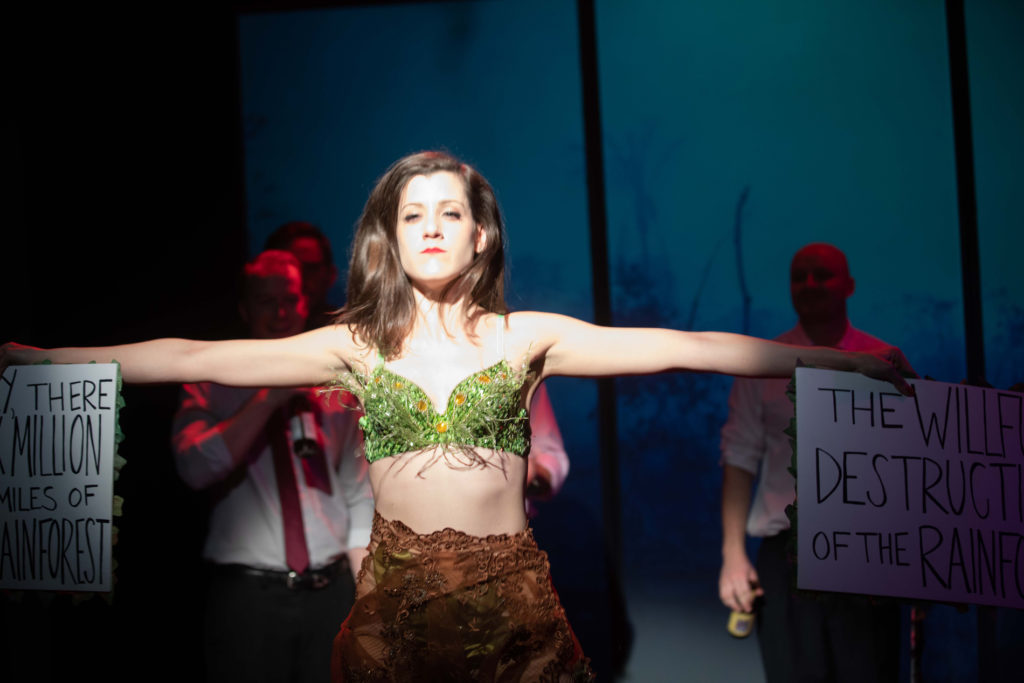YELLOW JOURNALISM, BLUE PLANET —
UNCERTAIN FUTURES
Propaganda has always existed. It’s when people promote and publicize their agenda utilizing biased or misleading information, a perfect tool for predomination, profit, and/or political power. With the advent of the internet, propaganda such as yellow journalism — which uses scandal-mongering, sensationalism and exaggeration of news events to sell papers — has gone viral. Forget legitimate, well-researched news, just do what it takes to get people to keep clicking. And while we click, we are being watched. Personality profiles based on your usage are sold to companies that are hired to increase sales for Corporate America or control the outcome of elections using fake news. In order to stop this insidiously Orwellian world we live in, all we have to do is quit social media (yes, that includes Facebook) and spend less time on the computer (yes, that includes less texting). If we don’t, our way of life will not have a chance to evolve, causing anger and anarchy.
Yes, the state of the world is our responsibility. And now, it is clear that humanity has become an unstoppable juggernaut which is not only destroying our way of life, but life itself.
It took over 200,000 years of human history for the world’s population to reach 1 billion, and only 200 years more to reach 7 billion, and seemingly overnight we have added another billion. Some pundits are warning that the earth cannot sustain this many people without dying, so she will figure out a way to rid herself of billions of people so that she can heal. Climate change was a phenomenon long before the 20th century (just ask dinosaurs and mastodons), but there is no doubt that we are hastening it to the point that weather is evolving faster than we can prepare for it (just ask Venice and Puerto Rico).
And what do we do? Keep having babies, over-consuming and refusing to halt our addiction to the internet and its calculating, cagey, and cunning clickbait techniques. It’s enough to make some people crazy.
Two plays this week have introduced me to two such protagonists who have both gone off the deep end. One fears the future as so bleak for her unborn child that she investigates ways to rid herself of her guilt for having a baby and the unborn child itself. The other is an idealist who compulsively combats the shrinking newspaper he works for, fearing that salacious journalism may just be the end of truth as we know it.
In Steven Leigh Morris’s world premiere by Playwrights’ Arena at Atwater Theatre, long-time editor Jerome has taken a new job running an alternative weekly paper not unlike the L.A. Weekly, where Morris once worked as editor and the edgy paper was an inch thick every seven days. As in the promising but convoluted Red Ink, the financial downsizing at L.A. Weekly became the bottom line and the publication shrunk to being a millimeter thick every week. L.A. Weekly was THE go-to-place for theater until that section was completely eradicated, right around the time that journalistic critique for theater also began “circling the drain,” as Jerome so aptly puts it about the press. One can see why Jerome has an obsessive fight to keep journalistic integrity and discernment alive. The problem is, he is battling the powers-that-be so aggressively that he becomes erratic and disoriented.
Instead of taking a vacation, Jerome voluntarily checks himself into a psychiatric ward for PTSD, where he acts out with fellow patients the events which led to his nervous breakdown. In these “flashbacks,” it seems that everyone hired by a passive-aggressive Hearst-like owner named Earl Glory (reenacted by a simpleton patient into junk food shoplifting) will eventually sell-out, except for Jerome — at the cost of his sanity. His moral crumbling creates capitulation to a canny, contriving corporate account manager, Jocelyn Flanders (who is played by a patient that acts like a five-year-old). The quick affair is a sign of power-play desperation by Jerome, who is losing his control as editor by surreptitious means. While Jerome doesn’t inhabit any other characters, the newspaper staff are played by other patients, an orderly, and even Jerome’s wife and daughter, which makes me wonder if all of this is in Jerome’s head.
Morris is an acute and very smart writer, and he knows this most important subject well. Yet even as it compels, this script feels like a first draft with a positively incongruous denouement. And if it sounds a bit complicated and dense, it is: Psychodrama, breaking the fourth wall, a memory play-within-a-play, imaginary people, and other meta-theatrics don’t always support the emotional core. Still, some scenes positively crackle: A devastating argument between Jerome and his wife elucidates his manic need for integrity, even at the cost of a marriage, and a heartbreaking scene in which Jerome is forced to lay off a long-time music critic highlights Jerome’s powerlessness.
 A grizzled Leo Marks captures Jerome’s ever-growing neuroticism beautifully, a great feat given he must go back-and-forth in time at the drop of a red pencil. Peter Van Norden positively astounds in three separate characters: His critic is highfalutin yet distraught, his mogul passive yet threatening, and his patient innocent yet beguiling. Steven Culp, playing an old-school entertainment editor, shows a real struggle to get on the P.C. road in a gripping scene that involves a film critic (Michelle Bonebright-Carter) who finds his editing questionable. Tracey A. Leigh does diligent double-duty as a long-suffering wife and a petulant patient, and Jocelyn Towne plays the ice-queen manager and that silly five-year-old. But quite often, it’s tough to buy the mental ward scenes as reality as the actors are practically caricatures; this may be director Nike Doukas’ way of saying this is ALL in Jerome’s head, but if that’s the case, the dramaturgy needs more than what Jerome’s daughter calls “suffering with no purpose.” (Speaking of which, the air-conditioner didn’t work and the seats were merciless; bring chair pads and a fan to make it through 100 minutes comfortably.)
A grizzled Leo Marks captures Jerome’s ever-growing neuroticism beautifully, a great feat given he must go back-and-forth in time at the drop of a red pencil. Peter Van Norden positively astounds in three separate characters: His critic is highfalutin yet distraught, his mogul passive yet threatening, and his patient innocent yet beguiling. Steven Culp, playing an old-school entertainment editor, shows a real struggle to get on the P.C. road in a gripping scene that involves a film critic (Michelle Bonebright-Carter) who finds his editing questionable. Tracey A. Leigh does diligent double-duty as a long-suffering wife and a petulant patient, and Jocelyn Towne plays the ice-queen manager and that silly five-year-old. But quite often, it’s tough to buy the mental ward scenes as reality as the actors are practically caricatures; this may be director Nike Doukas’ way of saying this is ALL in Jerome’s head, but if that’s the case, the dramaturgy needs more than what Jerome’s daughter calls “suffering with no purpose.” (Speaking of which, the air-conditioner didn’t work and the seats were merciless; bring chair pads and a fan to make it through 100 minutes comfortably.)
In Rogue Machine’s West Coast Premiere of Mike Bartlett’s Earthquakes in London, an astounding 17-member cast brings to life the tale of a family coming to grips with an almost certain future of cataclysmic meteorological events. Bartlett, who also wrote Cock and King Charles III, both of which use meta-devices as seen in Red Ink, including time-jumping, continues his trend with his 2010 knockout play — awesome even though it’s somewhat sprawling and has an ending a bit on-the-nose. Since Rogue Machine is struggling to build an audience in its new Venice location, they’ve had to cutback on the expense of set and prop design (puffing on unlit cigarettes is actually distracting) but with a massive engaging ensemble taking us on a three-hour journey which flies by, you’d be hard-pressed to find anything like this on ANY L.A. stage.
With an unbelievably slow-to-act Congress and a president who claims that climate change is fake news, the message behind Bartlett’s epic drama is especially concerning. It’s a wonder that it makes such good theater.
Three completely different English sisters living in London have been cut off from their father after their mum passed away almost twenty years earlier (the time-span here is 1968 to 2225). Robert, the dad, (a hard-hitting, scary, and truly extraordinary Ron Bottitta) is a heavy-drinking author and provocateur who has written about the foreseeable end of the world as we know it. His oldest daughter (Anna Khaja) is now working as a governmental minister for the environment; among other issues, her all-consuming job has her dealing with the possible addition of another runway at Heathrow, while at home her husband (Jeff Lorch), who has been laid-off, is becoming depressed and distant.
The middle daughter (Ava Bogle), a teacher, is pregnant and having ever-increasing conniptions about the future for her unborn child to the point that she’s paranoiac, swilling booze and smoking cigs. When her husband (James Liebman), leaves for a temp job, or so we think, she exits into a terrible rainstorm seeking some kind of resolution to her fears. The youngest sibling (Taylor Shurte) is a sometime stripper and trollop who thrives on being a troublemaker.
Central to the story is Robert — played as a young man by Paul Stanko and in his later life by Bottitta — who started his career as an environmental scientist who prophesies the growing dangers of climate change. We initially glimpse Robert on a first date with his future wife, and then intermittently in the meetings where he sells out his findings to the airline industry. He abandons his three daughters, in part, because he can’t stop obsessing about the bigger picture. Eventually, we will meet Robert’s new partner, Mrs. Andrews, played by a completely captivating Mari Weiss. It’s simply unfair to single anyone out, but Weiss’s body language, accent, and a world-weary determination to keep Robert, well, sane, is remarkable.
The play’s problematic in some ways, and certainly dour, so it’s incredible that directors John Perrin Flynn and Hollace Starr manage to create a smooth flow, finding character richness and humor along the way (choreographer Marwa Bernstein’s dance breaks are truly inspired). Somehow, though, the scene changes seem more polite than they should; I would have preferred them overlapping and crashing into each other like tectonic plates causing an earthquake in London.
At the performance of Red Ink last Monday, when Jerome bemoans that he misses Walter Cronkite, the audience audibly grieved. If you want that principled half-hour news report back, all you have to do is turn off the nightly news and quit clicking online. And if the thought of our earth incapable of sustaining us makes you nervous, you may want to rethink that SUV purchase, wasting food, carrying your own cup, etc. And babies? Well, there were two very pregnant women in the audience who were talking at intermission of Earthquakes about the subject at hand. If we can’t continue propagating our species, then what? These brave shows stimulate and open up these conversations. And that’s what creates change.
Red Ink photos by Kelly Stuart; Earthquakes in London photos by John Perrin Flynn
Earthquakes in London
Electric Lodge, 1416 Electric Ave. in Venice
Fri and Sat at 8; Sun at 2
ends on March 1, 2020 (dark Feb. 21)
for tickets, call 855-585-5185 or visit Rogue Machine
Red Ink
Playwrights’ Arena
Atwater Village Theatre, 3269 Casitas Ave.
Mon and Sat at 8; Sun at 4; Sat at 4 (Feb. 1)
ends on February 10, 2020 EXTENDED to February 24, 2020
for tickets, call 800.838.3006 or visit Playwrights Arena
















